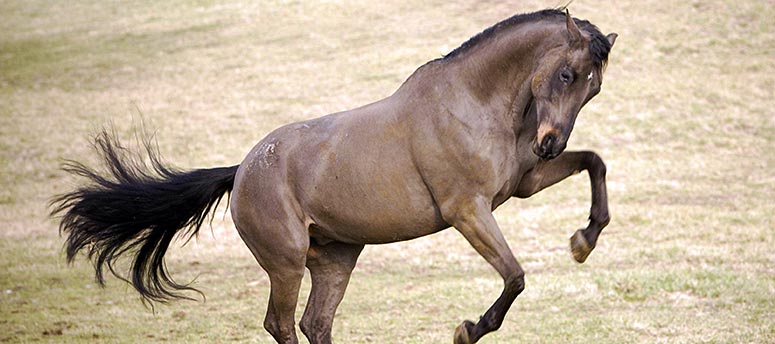
Mare-ish Behavior
By: Dr. Lydia Gray
What is it?
Some mares experience temperament changes when they come into "heat" that not only interfere with training and showing but also make day-to-day handling a challenge. These changes in behavior can range from trouble focusing to acting like there is physical pain to just being irritable and cranky. Temperament changes may be most noticeable during the spring and fall when mares transition into and out of the breeding season.
What can be done about it?
The complete estrous cycle in the mare is about 21-22 days long. Actual "heat" or estrus averages 5-7 days, although it can range from 2-11 days. During this time the hormone estrogen peaks and mares become receptive to stallions. After ovulation, mares go out of heat for 14-16 days while under the influence of a different hormone, progesterone. Mares that do not seem to cycle properly or that become dangerous during estrus should be examined by a veterinarian to rule out medical problems. A veterinarian can also prescribe Regumate, a man-made form of progesterone, which can be given orally to mares for up to 15 days in a row to suppress estrus and the behavioral changes that can come with it. Several herbs are used to support a healthy and balanced hormonal system in the mare, such as Vitex agnus castus and Raspberry leaf.
What else do I need to know?
Owners should carefully review their overall management to make sure that any behavioral problems are not due to improper diet, lack of turnout and socialization, poor ground handling skills, too little or too much exercise, ill-fitting tack, training and showing schedules, transport, or some other stress.
SmartPak strongly encourages you to consult your veterinarian regarding specific questions about your horse's health. This information is not intended to diagnose or treat any disease, and is purely educational.